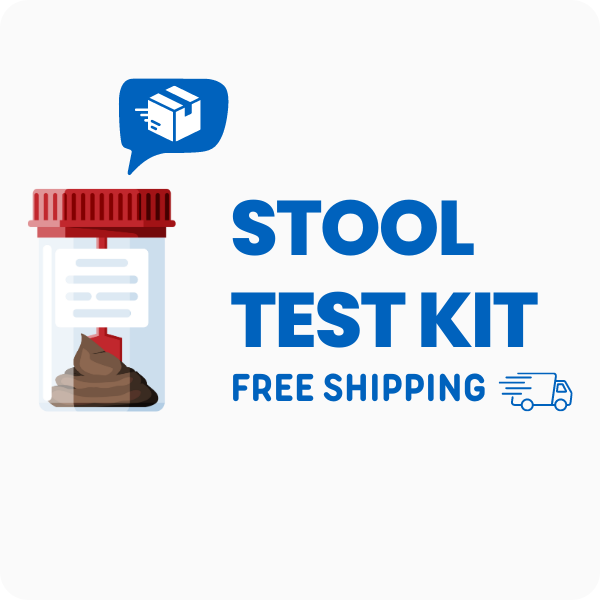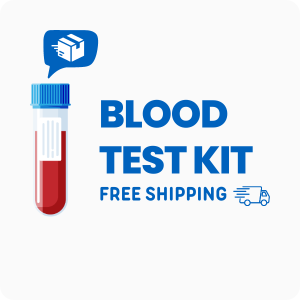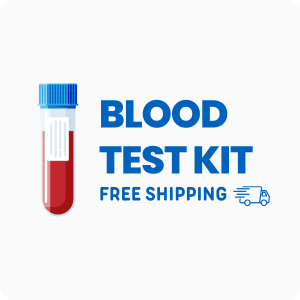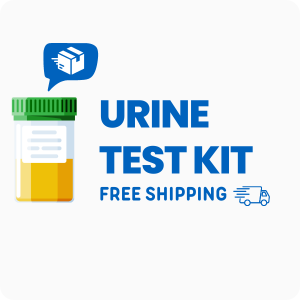Ordering the Comprehensive Stool Analysis Canada
The Comprehensive Stool Analysis Canada helps identify digestive problems, infections, and imbalances in the gut. This test checks for bacteria, yeast, parasites, inflammation, and food intolerances, giving a clear picture of what might be causing symptoms like bloating, diarrhea, or constipation. Interestingly, this test can also detect hidden blood in the stool, which may not be visible but can signal inflammation or other issues.
Ordering this test can help you:
- Pinpoint the cause of ongoing digestive symptoms, such as gas, bloating, or irregular bowel movements
- Detect hidden infections from bacteria, yeast, or parasites that may not show up in other tests
- Identify food intolerances, including gluten, dairy, soy, and eggs
- Check for signs of inflammation or immune response in the gut
- Monitor digestive enzyme levels to see if your body is breaking down food properly
Who Should Consider Digestive and Microbiome Testing
People who have been dealing with stomach pain, frequent diarrhea, or unexplained fatigue may benefit from this test. For example, someone who has tried changing their diet and still feels tired, bloated, or has unpredictable bowel habits could use this test to find out if an infection or food intolerance is the cause.
Ordering this test may also be helpful in these situations:
- Long-term constipation or loose stools that do not improve with simple changes
- Unexplained weight loss or trouble gaining weight despite eating enough
- Recurring nausea or vomiting without a clear reason
- Family history of digestive conditions like celiac or Crohn’s disease
- People who have traveled recently and developed new stomach symptoms, as travel can expose you to unfamiliar bacteria or parasites
This test is a practical way to find out if your symptoms are linked to infections, food reactions, or gut inflammation. Delaying this test could mean missing the chance to treat a problem early, which may allow symptoms to continue or get worse.
How to Prepare for the Test
Fasting is not needed for the Comprehensive Stool Analysis Canada, so you can eat and drink as usual before collecting your sample. Always follow the instructions provided by your doctor or healthcare provider to make sure your sample is collected and shipped correctly.
Labs Included When Ordering Your Comprehensive Stool Analysis Canada
| Test Name | Reference Range | What This Test Shows | Low and High Levels of Comprehensive Stool Analysis Canada |
|---|---|---|---|
| Stool culture for yeast (Candida) | None detected | Checks for yeast overgrowth, especially Candida, which can cause bloating, gas, and digestive upset. Detects if yeast is present in the gut. | High levels mean yeast overgrowth, which may cause digestive symptoms.
Low levels mean yeast is not detected or is at normal levels. |
| Ova & parasites | None detected | Looks for eggs and parasites that can cause diarrhea, stomach pain, and other gut problems. Finds hidden infections from travel or contaminated food. | High levels mean a parasite infection is present.
Low levels mean no parasites or eggs are found. |
| Bacterial stool pathogens | None detected | Detects harmful bacteria that can cause stomach pain, diarrhea, and inflammation. Helps find infections that may not show up in other tests. | High levels mean a bacterial infection is present.
Low levels mean no harmful bacteria are found. |
| Clostridium difficile Antigens | Negative | Checks for C. difficile, a bacteria that can cause severe diarrhea and gut inflammation, especially after antibiotics. | High levels mean C. difficile infection is likely.
Low levels mean C. difficile is not detected. |
| Giardia Antigen | Negative | Finds Giardia, a parasite that can cause watery diarrhea, cramps, and weight loss, often from contaminated water. | High levels mean Giardia infection is present.
Low levels mean Giardia is not detected. |
| Cryptosporidium Antigen | Negative | Detects Cryptosporidium, a parasite that can cause watery diarrhea and stomach cramps, especially after swimming or travel. | High levels mean Cryptosporidium infection is present.
Low levels mean Cryptosporidium is not detected. |
| Ameba histolytica Antibodies | Negative | Checks for antibodies to Ameba histolytica, a parasite that can cause severe diarrhea and stomach pain. | High levels mean exposure or infection with Ameba histolytica.
Low levels mean no antibodies are found. |
| H. pylori Antibodies | Negative | Finds antibodies to H. pylori, a bacteria linked to ulcers, stomach pain, and sometimes nausea or vomiting. | High levels mean possible H. pylori infection.
Low levels mean no antibodies are found. |
| Chymotrypsin | >6.0 U/g | Measures chymotrypsin, a digestive enzyme, to see if your pancreas is making enough enzymes to break down food. | High levels mean rapid transit or inflammation.
Low levels mean possible enzyme deficiency or poor digestion. |
| Occult Blood | Negative | Checks for hidden blood in the stool, which can signal inflammation, ulcers, or other gut problems. | High levels mean bleeding in the digestive tract.
Low levels mean no blood is detected. |
| Fecal pH | 6.0-7.5 | Shows the acidity or alkalinity of stool, which can change with infections, food intolerances, or poor digestion. | High levels mean more alkaline stool, possibly from low stomach acid or certain bacteria.
Low levels mean more acidic stool, often from fermentation or malabsorption. |
| Total Intestinal SIgA | 510-2040 mg/dL | Measures secretory IgA, an immune protein in the gut, to see if your immune system is reacting to infections or food. | High levels mean active immune response or inflammation.
Low levels mean weak gut immune defense. |
| Intestinal Lysozyme | <600 ng/mL | Checks lysozyme, an enzyme linked to gut inflammation, especially in conditions like Crohn’s or colitis. | High levels mean gut inflammation is present.
Low levels mean no sign of inflammation. |
| Alpha Anti-Chymotrypsin | <120 mcg/g | Measures a protein linked to inflammation in the gut, helping to spot ongoing irritation or immune activity. | High levels mean active inflammation.
Low levels mean no inflammation detected. |
| Gluten Intolerance Test | Negative | Checks for immune response to gluten, which can cause digestive symptoms in people with gluten sensitivity or celiac disease. | High levels mean possible gluten intolerance or celiac disease.
Low levels mean no reaction to gluten is found. |
| Tapeworm Antibodies | Negative | Detects antibodies to tapeworms, which can cause weight loss, stomach pain, and other symptoms if present. | High levels mean possible tapeworm infection.
Low levels mean no antibodies are found. |
| Roundworm Antibodies | Negative | Checks for antibodies to roundworms, which can cause digestive upset and other symptoms if present. | High levels mean possible roundworm infection.
Low levels mean no antibodies are found. |
| Tissue worm Antibodies | Negative | Finds antibodies to tissue worms, which can sometimes cause digestive or other symptoms if present. | High levels mean possible tissue worm infection.
Low levels mean no antibodies are found. |
| Toxoplasma Antibodies | Negative | Checks for antibodies to Toxoplasma, a parasite that can cause mild or severe symptoms, especially in people with weak immune systems. | High levels mean possible Toxoplasma infection.
Low levels mean no antibodies are found. |
| Dairy Intolerance | Negative | Checks for immune response to dairy, which can cause bloating, cramps, or diarrhea in people with intolerance. | High levels mean possible dairy intolerance.
Low levels mean no reaction to dairy is found. |
| Soy Intolerance | Negative | Finds immune response to soy, which can cause digestive symptoms in people with intolerance. | High levels mean possible soy intolerance.
Low levels mean no reaction to soy is found. |
| Egg Intolerance | Negative | Checks for immune response to eggs, which can cause stomach upset or other symptoms in people with intolerance. | High levels mean possible egg intolerance.
Low levels mean no reaction to eggs is found. |
Reference ranges may change slightly as labs update their methods or as new research becomes available. Always check your report for the most current reference values.
Comprehensive Stool Analysis Canada FAQ
Is there Comprehensive Stool Analysis Canada testing near me?
This is a home test kit, so you can collect your sample locally and send it to the lab—no need to travel for collection, which is helpful if you have ongoing digestive symptoms that make leaving home difficult. For more details, check the draw location link at the top of the page.
How do I interpret the test results?
While your treating physician should review your results, we also offer a one-on-one test results review with our clinical team to help you understand what your results mean and what steps you can take next.
What is the cost of the test?
The price for the Comprehensive Stool Analysis Canada includes standard shipping to you and return shipping to the lab, though draw fees may apply. Ordering this test can help you quickly find the cause of symptoms like bloating or diarrhea, so you can start feeling better sooner.
How often should I retest?
Retesting is usually recommended every 6 to 12 months, especially if you are monitoring changes in symptoms or treatment progress. Regular testing helps track improvements or spot new issues as they develop.
How accurate is the test?
This test uses advanced stool culture, antigen detection, and antibody testing methods, with a specificity of 98% and sensitivity of 96% for most markers. TrueHealthLabs.com partners with CLIA-certified and CAP-certified laboratories to uphold rigorous testing standards for dependable results.
Important Notes
- This test can not be collected or mailed from New York State
- This is a 3 sample collection (2 days apart).
- SAMPLE REPORT
- Collection and Shipping Instructions
Medical Review Board
Reviewed by Jeff Donohue M.D. from Body Logic and Brady Hurst DC, CCCN. Written by True Health Lab’s team of editorial health contributors.
Disclaimer: This information is for educational purposes only and not intended as medical advice. Consult your healthcare provider for personalized guidance.
Why Customers Trust True Health Labs – What People are saying
Also rated 4.6 out of 5 based on 3452 ShopperApproved reviews- See all TrueHealthLabs.com reviews.









